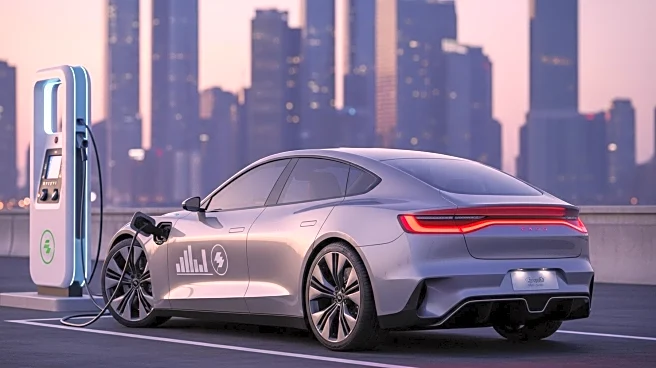What's Happening?
In August, the US electric vehicle (EV) market experienced a record-breaking month with 146,332 EVs sold, marking a 9.9% share of total new car sales. This surge is attributed to the impending expiration of the federal EV tax credit on September 30, which has driven consumer urgency. Despite leading the market, Tesla's sales dropped by 6.7% year-over-year, and its market share fell to 38%, the lowest ever recorded. The average transaction price for Tesla vehicles rose by 2.9% in August to $54,468, yet remained 5.5% lower than the previous year. Analysts note that Tesla's decline is partly due to increased competition from new EV models introduced by mainstream brands.
Why It's Important?
The decline in Tesla's market share amidst record EV sales highlights the growing competition in the EV sector. As more consumers opt for electric vehicles, legacy automakers like Ford, General Motors, and Hyundai are gaining ground with innovative models. This shift could impact Tesla's dominance in the market, potentially affecting its pricing strategies and brand loyalty. The expiration of the federal tax credit further intensifies the competitive landscape, as consumers rush to purchase EVs before incentives end, benefiting other automakers more than Tesla.
What's Next?
With the federal EV tax credit set to expire, the market may see a temporary slowdown in sales post-September. Tesla may need to innovate and introduce new models to regain its competitive edge. The company could also explore strategic pricing adjustments or marketing campaigns to bolster its market position. As competition intensifies, Tesla's response to these challenges will be crucial in maintaining its leadership in the EV industry.










